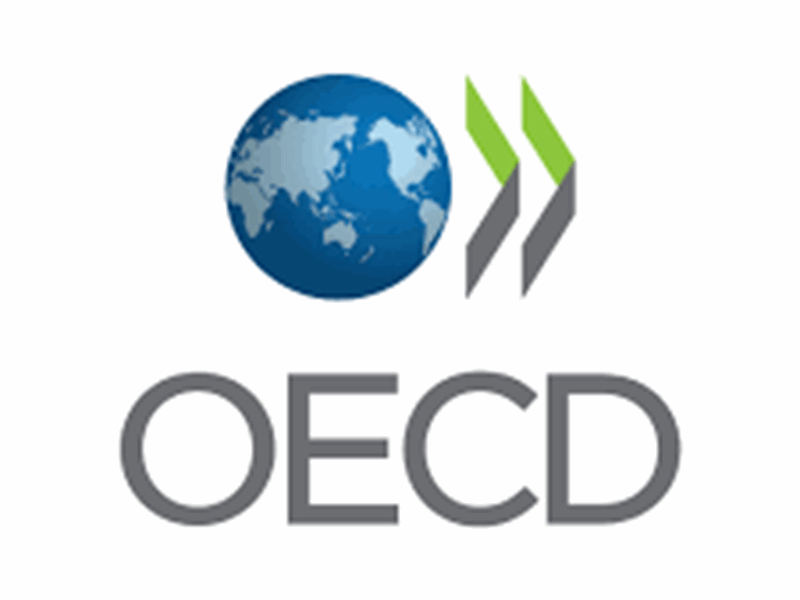2023

U.S. Business Group’s Belgian UTPR Challenge Gains Traction
American groups and lawmakers are rallying behind a legal challenge filed in Belgium’s Constitutional Court against the undertaxed profits rule, but it could be a while before a decision is rendered — and success isn’t guaranteed.

Don't ‘B’ Left Behind: How Companies Need to Prepare for Amount B
Kartikeya Singh, Anthony Tufo, Shubhana Sattar, and Marco Fiaccadori explain the OECD inclusive framework’s amount B and the large effect it is likely to have on transfer pricing. They analyze the ways in which multinational enterprises can prepare for the various iterations that could arise as jurisdictions choose how to react to amount B.

Competent Authority Resolutions and the Creation of BEAT Liability
David Farhat, Mayowa Olujohungbe, and Bryan McGrane explain why tax authorities can and should expediently address base erosion and antiabuse tax liability that may arise from taxpayers’ use of the advance pricing and mutual agreement program.

Ireland Proposes Amount B and Global Minimum Tax Amendments
The Irish Department of Finance has issued draft legislation calling for amendments to existing laws to implement the OECD amount B political commitment and incorporate further global anti-base-erosion administrative guidance.

Final IP Repatriation Regs Closely Follow Proposed Rules
Final rules on the termination of income inclusions for repatriated intangible property track closely to proposed regs, with the drafters declining significant expansion over administrability and scope concerns and refusing to make the rules retroactive.

Loper Bright Blocks Payment Loss Rules, Business Groups Assert
Business groups and associations have responded forcefully in comments criticizing Treasury’s disregarded payment loss regs, arguing that the government lacks authority to issue the rules, as the Supreme Court made clear in Loper Bright.

Surprise CAMT Rules on Foreign-Parented Groups Are About Parity
Proposed corporate alternative minimum tax regs’ provisions pertaining to foreign-parented multinational groups, which have caught some tax experts by surprise, were drafted to ensure parity between foreign and domestic entities, according to Treasury.

EU’s Highest Court Tells U.S. Taxpayers to Pay for a New Marshall Plan
Mindy Herzfeld examines the saga of European state aid cases and the costs of the Court of Justice’s recent decision in European Commission v. Ireland for the U.S. government — and its taxpayers.

Brazil Introduces Domestic Minimum Tax in Line With Pillar 2
Brazilian President Luiz Inácio Lula da Silva has issued a provisional measure providing for a domestic minimum tax intended to be qualified as in line with the OECD’s global anti-base-erosion rules.

The U.N. Model Tax Treaty’s Shift Away From Physical Presence: An Analysis of Draft Article XX
Hafiz Choudhury outlines the progress of draft Article XX on fees for services within the U.N. model tax convention’s evolution away from reliance on physical presence.

UN Global Tax Talks Duplicating Work at OECD, EU Says
The European Union said negotiations for a new corporate tax treaty at the United Nations were potentially duplicating those taking place at the Organization for Economic Development and Cooperation in Paris.

Rachel Reeves to spare PE bosses top UK tax rate in compromise on ‘loophole’
Rachel Reeves, the UK chancellor, is not expected to hit private equity bosses with the top 45p tax rate in this month’s Budget, as she looks for a compromise deal to close tax “loopholes” that does not drive investors out of Britain.

European Commission Delivers First Blow to Hungary’s Retail Tax
The European Commission is acting on a complaint by foreign-controlled companies operating in Hungary that the country's discriminatory retail tax regime puts them in a much higher tax bracket than domestic retail franchises operating there.

Four EU Member States Referred to High Court for Pillar 2 Delay
The European Commission has referred Cyprus, Poland, Portugal, and Spain to the EU’s highest court after warning them twice about their slow adoption of the EU’s directive for implementing global minimum tax rules.

EU member states agree to impose tariffs on Chinese electric vehicles
EU member states have agreed to impose tariffs of up to 45 per cent on imports of Chinese electric vehicles, ratcheting up the biggest trade dispute between the economic superpowers in a decade.

Shareholders, Creditors, and GLOBE: A New Perspective
Fabian Kratzlmeier argues that pillar 2’s group approach disregards the interests of creditors and minority shareholders, and he explores how long-standing concepts of civil, corporate, and bankruptcy law could be used to protect those interests within the global anti-base-erosion framework.

U.S. Group Backs UTPR Legal Challenge in Belgian Court
The U.S. Chamber of Commerce has expressed strong support for another American business group’s legal challenge against the undertaxed profits rule in the Belgian Constitutional Court, saying the measure is “fundamentally flawed.”

UF Tax Incubator: Gutting Subpart F?
Jeffery M. Kadet responds to a recent article on reforms to the subpart F and global intangible low-taxed income regimes, commending the authors’ efforts but arguing that their proposals should be carefully considered, given whom they would benefit.

OECD Report Provides Guidance on Crypto-Asset Reporting
The OECD has published guidance for tax administrations on exchanging information on crypto assets. The document, dated Oct. 2, features a user guide for the XML schema used in the automatic exchange of information under the Crypto-Asset Reporting Framework, or CARF.

The U.S. Tax System’s Curious Embrace of Manufacturing Job Losses
J. Clifton Fleming Jr., Robert J. Peroni, and Stephen E. Shay explain how the subpart F regime and the global intangible low-taxed income regime together contribute to a long-running decline in domestic manufacturing employment, and they argue that the best approach to fixing the problem is worldwide taxation without deferral, not pillar 2.

Confines of Covered Inbound Transactions Under Notice 2024-16
Notice 2024-16 announces the government’s intent to issue regs to provide an adjustment to a domestic acquiring corporation’s basis of acquired CFC stock for covered inbound transactions. Laura E. Williams, Jennifer Franceschini, and Raza Janjua of PwC explain how the narrow definition of covered inbound transactions and the limitations outlined in Notice 2024-16 may leave taxpayers exposed to double taxation in many situations, and argue that future regulations should provide for expanded relief.

Ireland Extends Tax Benefits for Investors in Budget
Ireland revealed plans Tuesday to extend a range of tax benefits to attract risk finance into the country as part of a pre-election budget. The Department of Finance is proposing to extend the Relief for Investment in Corporate Trades benefits by two years, a budget document outlining tax measures said, putting them into effect until Dec. 31, 2025.

Argentina's New Tax Incentives to Shore Up Foreign Investments
Argentina’s economic reform law has significant tax implications for various industries. The law, issued by decree on Aug. 22, includes a large investments incentive system known as RIGI. A key feature of the measure is a stability provision for a 30-year period, encompassing tax, customs, legal, and regulatory incentives.

Treasury Downplays FTC Timing Concerns in Corporate AMT Regs
Treasury is not overly concerned with practitioner worries stemming from a lack of carryforwards for direct foreign tax credits and book-to-tax income recognition timing differences under its corporate alternative minimum tax proposed regs.

German Transfer Pricing Updates Align Arm's-Length Rules, OECD
Germany’s Growth Opportunities Act, applicable as of Jan. 1, highlighted a disparity between the German legislature’s application of the arm’s-length principle for intra-group financing versus OECD transfer pricing guidelines for multinational companies and tax administrations. This has created substantial uncertainty for multinationals, leaving many unresolved questions about application of the new tax legislation.




































